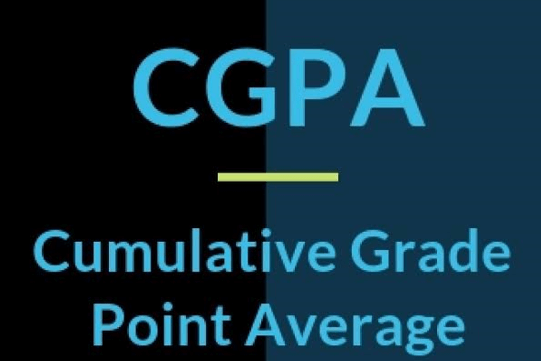Do you want to know quick ways to increasing your CGPA from 1.5 to 4.5 and above?
If Yes, you are on the right page. In this article, I will show you the 6 proven ways to increasing your CGPA from 1.5 to 4.5 and above.
After being admitted into higher learning institutions somewhile, the next big thing students do think about is the magnitude of their CGPA, mainly on a 5.0 scale.

By the way, you may want to know the meaning of CGPA and the differences between a CGPA and a GPA. CGPA means (Cumulative Grade Point Average). CGPA is often used to measure the overall academic performance of a student. That is to say, CGPA is an average of your GPA from all completed semesters. On the other hand, GPA means (Grade Point Average). It is a number that shows your score on average per course in a semester.
Some universities in Nigeria do follow a particular sequence of 5.0 limit and do link their grade as shown below:
Grade Points
5.0 — A
4.0 — B
3.0 — C
2.0 — D
0.0 — F
Grades are listed as follows:
100 – 70% — A
60 – 69% — B
50 – 59 — C
40– 49 – D
0 – 39 — F
All these techniques work in order to assign at the end of a learning program a grade or class to students based on their various levels of performance. A first-class is the highest grade in the tertiary institution grading system. A first-class grade starts from a CGPA of 4.5 and above.
Apart from the first-class upper, there are other classes of grades that are assigned based on one’s capability with the worst being a pass mark with a CGPA of 1.5 – 2.5. The second-class upper is popularly called the 2:1 in Nigeria with a CGPA of 3.5 – 4.49. The second-class lower is commonly called 2:2 with a CGPA of 2.5 – 3.49. The third class is the pass.
Graduating with a high CGPA is the battle of every student in the university sphere, A’s are sought after with fervour. Normally, what you make in your first year of study determines where your CGPA would land.
Increasing your CGPA – How hard is it?

Your first semester’s GPA in a school doesn’t necessarily determine how your CGPA would land in the final year — This doesn’t mean you should flaunt your first-year first semester GPA. Having a poor CGPA going into the latter or ending part of your program can’t necessarily be changed. If targeting a high CGPA before graduating is what you want, then it will only affect it by only a margin if affected. To be practical a bit: My GPA being 4.09 isn’t that good [personally], a little more academic push to the degree of 4.90 another academic semester might average on a 4.5 GPA. Having a good GPA doesn’t necessarily mean you’ve arrived because it requires constant nurturing since it might slip at any moment.
However, the following are the steps to increasing your CGPA.
1. Be Disciplined To Plan
At the top of the procedures to making a good GPA in school is discipline. Promising to follow a pattern is one thing; following the pattern you profess is another thing.
You have made series of plans as a student. You even structured how your workings throughout your academic time would be to maximize efficiency. You may have proposed what you need to do to change your last season’s poor performance but without discipline, all may come to futility. Hence, the sense of discipline being a crucial element in GPA straightening up.
You might be someone who loves walking around doing nothing. One who loves being in the company of women, one who can’t stand even 1 hour of reading. You can improve your reading struggle with these tips.
2. Improve Your Study Strategy
Failing to plan is like planning to fail. Make plans for your study as this is the only assured way of augmenting your CGPA. Different people have different times and positions of extreme assimilation. There are times you may not get something onto your head, and there are times you feel at ease reading. Everyone has a schedule and learning pattern, perfect your own to best serve you.
The time-based reading discussed here doesn’t mean you have to get caught by laziness in reading. Your plan should involve reading without a seizure.
If you don’t have a study strategy, you can study all day and night and still not get anywhere. To make the most of your study time is to employ a study strategy.
ALSO READ: Common Mistakes Students Make When Preparing For an Exam
3. Take Every Class Seriously
Sometimes classes are interesting to you while sometimes they may be super-boring. Others might like the boring one and vote down the one that is of more interest to you.
To generally have a good GPA at the end, learn to like every lecture and every lecturer. It is a good thing to be noticed by a lecturer as a good, obedient and diligent student than vice-versa.
Being serious with classes will make you never intentionally miss lectures or even being late for it. Coming to lecture early guarantees a place at the front where explanations from the lecturer can be pen down.
4. Managing Sleep As A Student
Maintain a good sleep time is a product of good time management. This time management does not necessarily mean having a spacy time allocated for sleep. Learning to defeat sleeping entails discipline on the part of the student. As good as it sounds, sleeping can become a disaster to your academic life – as too much of it buds underperformance.
Although, it’s good to spend a fair amount of time studying before a test, it’s just as important as getting enough rest. Sleep improves concentration, solidifies what you have learned and improves your ability to organize and recall information. Poor performance in school can often be directly linked to sleep deprivation.
5. Develop a Note-Taking System
Note-taking is very important as key points during a lecture can be an indispensable tool in passing examinations.
Different professors have different teaching styles. Some lecturers use PowerPoint slides while some depend on handouts and textbooks. The inconsistency, if not handled properly can lead to a forthcoming low performance. The best way to handle this is to identify and develop a note-taking system that works with each professor’s teaching style.
6. Have A Small Body of Intelligent Friends
Social wise, you should make enormous friends on the campus, but those you make should be selective.
Spend quality time with a study friend who has a high CGPA. Your friends will be able to help you out when you struggle and may prove to be a good influence should you feel the urge to slack.
Kindly add me for a more educative essay, expression and if you need advice on campus activities @gboyega Festus Famuditi.
WhatsApp: wa.me/23407053519613




